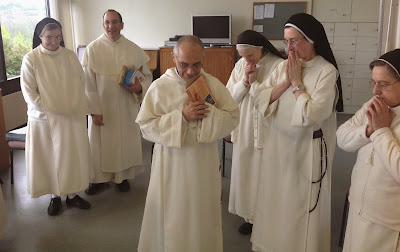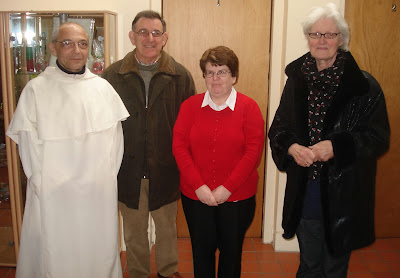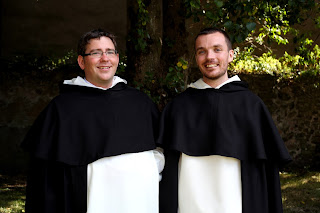We wish all our readers of this blog the peace and joy of Christmas
Christmas reflection
“God sent His Son born of a woman to
enable us to be adopted as sons” – can we ever grasp the depth of this mystery
which we celebrate tonight? Eternity will not be long enough to plumb its
depths.
I would like to reflect a little on
Mary’s role in this mystery of the Incarnation of the Eternal Word of God. “She is the one who opened her heart to faith
and her bosom to her Maker” as we read in St Bernard during the week. She put her young life at the disposal of her
Creator – and the Word became flesh and dwelt among us. But Mary’s role did not end there – she
continued to ponder the Word in her heart and accompanied her Son to the foot
of the Cross where she received another mission from His dying lips: “Mother,
behold your son!” Yes Mary is to continue to bring forth Christ in all those
entrusted to her until the end of time.
We may ask ourselves what this
invitation may be? At the foot of the
Cross Mary heard those other words: “I thirst.”
Jesus thirsts for our love; He thirsts to be born again in each of our
hearts and lives this Christmas. He thirsts that we can hear His word of love
in the silence of our hearts; that we recognise Him in whatever guise He
presents Himself at each moment of the day.
He thirsts that we believe in His love for each of us just as we are,
even when we feel unworthy. A few years
before her death Mother Teresa of Calcutta wrote to her sisters and perhaps her
words can speak to us again tonight: “Because Mary was there on Calvary she
knows how real, how deep is Jesus’ longing for each of us. Ask her to teach you … her role is to bring us face to face with the
love in the Heart of Jesus Crucified. Hear
her pleading: ‘Listen to Jesus’ thirst’ - let it be for each of us a Word of
Life.” In our second reading tonight St
Paul Titus
2:14 ). Yes Jesus thirsts
for us to be his very own, He thirsts for our love, He thirsts that we believe
in His personal love for each of us.
As the Word was formed in Mary’s
womb through the power of the Holy Spirit, we are now invited to rest in her
womb and by the power of the Holy Spirit be transformed there ever more
perfectly into the image of Christ. By
remaining close to Mary we allow her to accomplish her mission in us by allowing
her to form us into other Christs, into great saints, as sons in the Son, beloved
of the Father.
















